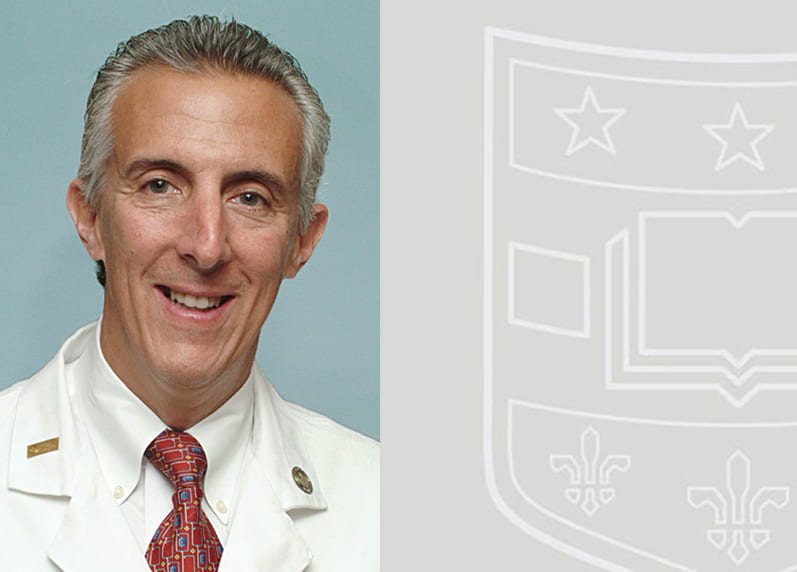Hereditary hemorrhagic telangiectasia or HHT is a rare bleeding disorder caused by arteriovenous malformations that result in telangiectasias, small widened or broken vessels near the surface of the skin that are often accompanied by bleeding. Although HHT can affect any organ or area of the body, epistaxis or nosebleed is the most common recurring symptom, affecting 90% of HHT patients. That drives many of them to WashU otolaryngologist Jay Piccirillo, MD, who is actively investigating ways to control the bleeding.
According to Piccirillo, Washington University School of Medicine is one of the oldest and busiest Centers of Excellence for HHT, a designation awarded by the Cure HHT Foundation. Because the disease can affect many different organs, an institution must have HHT experts across many medical specialties to qualify as a Center of Excellence.
Treatments for HHT epistaxis range from topical moisturizers to nasal packing to sclerotherapy – a chemical agent commonly used to eliminate varicose veins by shutting down vessels causing them to be resorbed. Cauterization and surgery to ligate arteries that supply the nose can also be used in cases of more persistent bleeding. One of the most exciting recent advances however is the use of localized anti-angiogenic agents to stop the formation of new blood vessels.
Piccirillo’s newest study is a clinical trial to investigate the ability of the common antibiotic doxycycline to reduce epistaxis in HHT patients. In addition to being a well-tolerated antibiotic and anti-inflammatory, doxycycline has also been shown to have anti-angiogenic properties.
This study will evaluate the efficacy of oral doxycycline for epistaxis in HHT patients.Study participants will be randomized to receive either eight weeks of oral doxycycline or eight weeks of a placebo and complete questionnaires about how they are feeling at different time points during their participation. The study has been approved to enroll as many as 160 patients.
Piccirillo and WashU also recently hosted a virtual symposium, International HHT Case Conference: Epistaxis, where specialists were invited to present and discuss notable patient case studies.
To learn more about HHT visit curehht.org. To learn more about the doxycycline clinical trial, please contact study coordinator Sara Kukuljan.
